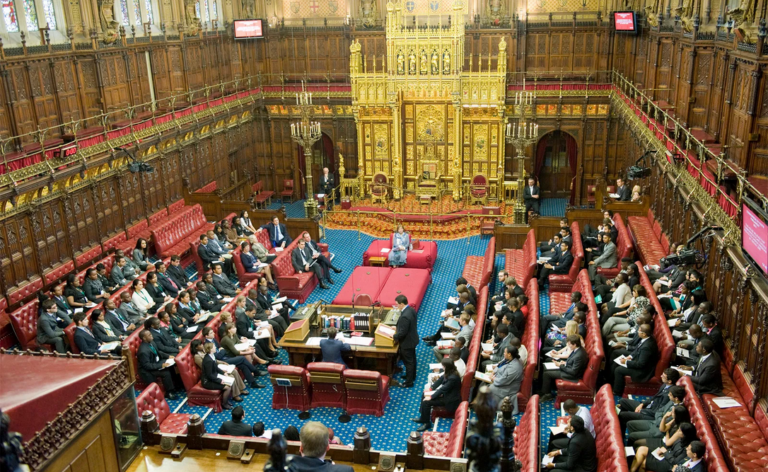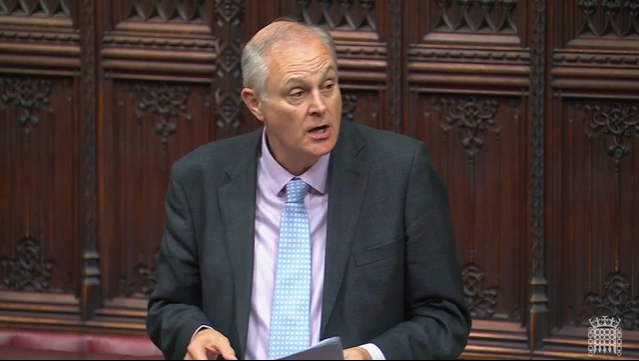
Earlier this week, Lord Ahmad of Wimbledon secured a debate in the House of Lord’s on “The UK’s role in safeguarding the freedom of religion and belief of minority faith communities across South Asia.” Lord Ahmad was a long-serving Foreign Office minister in the previous government and was the Prime Minister’s Special Envoy for Freedom of Religion or Belief when the position was first created in 2018. The debate, which featured an array of contributors from the Upper House in the UK Parliament, brought to the Government’s attention a multitude of religious freedom concerns and violations across the South Asia region — in Pakistan, India, Bangladesh, Sri Lanka, and Nepal.
Lord Stewart Jackson of Peterborough focused his remarks on the abuses and injustices in the Indian context “where Mahendra Modi’s Hindu nationalist BJP has presided over a severe decline in the nation’s record on human rights and religious freedom.” He highlighted the issue of anti-conversion laws, which have doubled in number under Modi’s rule, and which are misused to oppress minority faith communities. Lord Jackson also addressed the ongoing injustice for Christians in India’s Manipur State where, last year, Hindu nationalist factions within the Meitei tribe wrought unimaginable violence and destruction upon the Christian communities of the Kuki-Zo tribe. The violence, “fuelled by hateful propaganda and misinformation, resulted in hundreds of people being murdered, hundreds of places of worship being destroyed and tens of thousands of people losing their homes and livelihoods.” Lord Jackson highlighted the ongoing tensions and injustices, calling on the UK Government to use the full breadth of its diplomatic tools to call upon the Indian Government to ensure the situation is properly resolved. Such resolution would enable the tens of thousands who were displaced to return home from the horrendous temporary camps in which they have been living, and given ongoing security threats, provide the compensation and support they need to rebuild their homes, churches, businesses and lives.

Lord Jackson was one of a number of contributors to the debate who criticized the UK Government’s delay in appointing a new Special Envoy for Freedom of Religion or Belief, noting that the UK was not properly represented at the annual International Freedom of Religion or Belief Alliance ministerial conference that took place earlier this month in Berlin. He stated that “the Labour Government must develop a deep knowledge and understanding of religious freedom, going beyond unsophisticated assumptions” and called on the Government to restore “freedom of religion or belief as a foreign policy priority, sufficiently resourcing the FCDO’s engagement, and establishing a special envoy on a statutory footing.” Amid these remarks, Lord Jackson acknowledged RFI’s endeavors, saying “I pay tribute also to the work of the Religious Freedom Institute, based in Washington DC, which has led the way in supporting legislators across the globe in their work on raising awareness of the importance of freedom of religion and belief.”
The Foreign Office Minister, Baroness Chapman of Darlington, in her response to the debate, acknowledged the many issues that had been raised and expressed her own concern about the grave challenges to religious freedom in South Asia. She implied, not for the first time, that the Government intended to address the absence of a Special Envoy soon. Over the past decade, the UK has established itself as a global leader in the cause of religious freedom. Acknowledging this achievement, Baroness Chapman said, “I assure noble Lords that the torch from the previous Government has been received and we will continue to carry it forward because [religious freedom] is such an important issue.”
Watch the debate in the House of Lords on religious freedom in South Asia (beginning at 19:40:30), including Lord Jackson’s remarks (beginning at 20:12:31).
Source: RFI